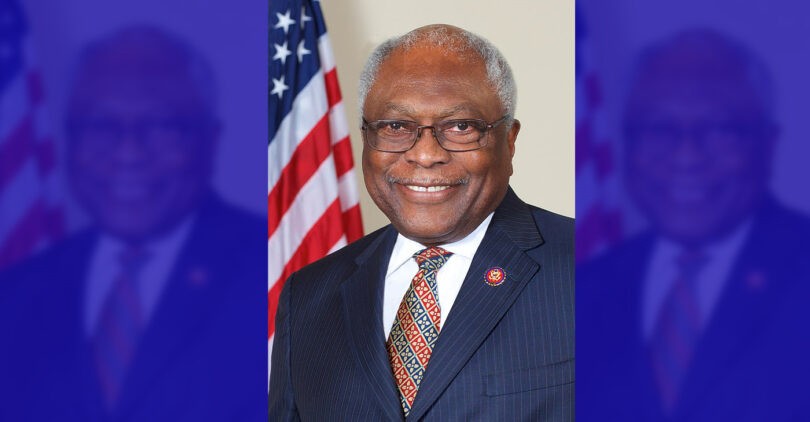By Assistant Democratic
Leader James E. Clyburn
Earlier this month, I stood alongside my colleagues as we announced the reintroduction of the John R. Lewis Voting Rights Advancement Act, legislation aptly named after the stalwart civil rights champion and my dear departed friend. I often recount the story of how and when I first met John Lewis.
It was in October 1960. We were 19-year-old college students attending an organizing meeting of the Student Nonviolent Coordinating Committee (SNCC) in Atlanta, Georgia. Years later, we would serve together in the U.S. House of Representatives, once again united under the cause for “a more perfect Union.”
In 2013, we sat down together and discussed the Supreme Court’s decision in Shelby v. Holder. We reflected on the efforts that we had undertaken as college students and wondered what the decision meant in the larger fight for equal access to the ballot box. We were reminded of the years when our Black brothers and sisters, especially those in the South, were subjected to indignities such as being required to answer questions like how many jellybeans were in a jar and being subjected to literacy tests to cast a ballot.
Importantly, we feared what was to come. Although we lost John just a few short years later, he too began to see some of those fears realized.

In the years since Shelby v. Holder, several state legislatures across the country have introduced or enacted laws to curb Black Americans’ access to the ballot box. Arizona and Mississippi enacted legislation to require burdensome proof of citizenship to determine eligibility to register to vote. Dozens of state legislatures introduced bills to restrict the practice of voting by mail.
Other states have begun aggressively removing voters from the rolls and re-drawing Congressional maps blatantly designed to silence the Black vote. Look no further than Ron DeSantis’ Florida and the dismantling of an opportunity district held by former Congressman Al Lawson. Then, in July 2021, the Court further weakened the 1965 Voting Rights Act in its decision in Brnovich v. DNC, making it more difficult to challenge discriminatory voting laws.
Yet, this is far from the first time that access to the ballot box has come under such attacks. Ahead of the 1876 Presidential Election, South Carolina Democratic Congressman Martin Witherspoon Gary devised a devious campaign, known as the “Edgefield Plan,” to impede the Black vote. The Edgefield Plan called for physical violence, and even murder, to keep Blacks from voting. He worked closely with rifle clubs and the South Carolina white supremacist group known as the “Red Shirts” to execute it. Devastatingly, he was successful. The violence and disorder tilted the scale and placed the Democrats back in power after years of Republican control.
We’ve already begun to see these terrifying echoes of the past reverberating today. There are the restrictive voter suppression laws I described above. Then came January 6, 2021 — a day that will live forever in our history as a moment of discredit and disgrace. We are clearly treading in dangerous waters and if we want to preserve the foundation of our democracy, we must pass this bill.
The John R. Lewis Voting Rights Advancement Act would restore and modernize the protections outlined in the 1965 Voting Rights Act and call on states and localities, with a recent history of discrimination, to preclear new election changes. It would also restore Section 2 of the Voting Rights Act, which was struck down in Brnovich v. DNC, making it easier to challenge discriminatory voting laws. It is the remedy our nation needs to fight back against these dangerous challenges to our democracy and ensure that all Americans can make their voices heard at the ballot box.
Importantly, it would also honor John’s life work. He was one of the most courageous people I’ve ever known, and I think constantly of how much we owe him. Almost none of us made the kinds of sacrifices that John made, even as a young college student, at a level that some of us could only strive for. Enacting the John R. Lewis Voting Rights Advancement Act would make a statement to the people of this country that this august body believes in the sacred promise of “a more perfect Union” as expressed in the preamble to our Constitution.




